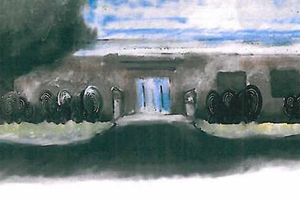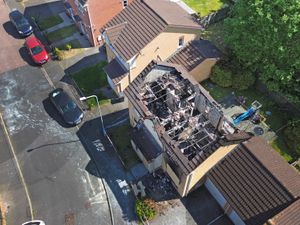£30k sculpture plan at Bilston police station is rejected
Controversial sculptures costing more than £30,000 that were dreamed up for outside Bilston's new police station have been rejected by council planners.

Controversial sculptures costing more than £30,000 that were dreamed up for outside Bilston's new police station have been rejected by council planners.
It now means that designs and preliminary work worth £20,000 of taxpayers' money has been wasted, according to the chairwoman of the city's planning committee.
The artwork, which was meant to symbolise fingerprints, has been criticised by 40 people who claimed that they had no idea what the pieces were supposed to represent.
Tory councillors on the planning committee of Wolverhampton City Council yesterday voted to reject the designs for the £3.5 million Oxford Street station, which opened in December.
The 30 sculptures, ranging from 25in to 4ft, were meant to depict "the hand of the law" and were to be made up of a cluster of statues depicting fingerprints.
They were required as part of planning permission granted two years ago containing a condition that public art worth around one per cent of the scheme's cost be commissioned.
Such requirements are called section 106 agreements.
Conservative councillor Carl Husted told the committee: "This section 106 is a total waste of time and totally offensive that it relates to such a large sum of money on something that is as subjective as art."
Fellow Conservative Margaret Findlay added: "It seems that no-one wants it judging by the result of this consultation."
Labour councillor Keith Inston sided with the Tories.
Planning committee chairwoman Councillor Judith Rowley, who voted in favour of allowing the scheme, said: "Rejecting this is a gross waste of public money because I understand £20,000 of the police budget has already been spent."
The objections came from Bilston residents who said they had not been properly consulted, the design was poor and they did not understand what they represented. Robert Graves, head of property services at West Midlands Police, said that most people who had responded to a public consultation had been in favour.




